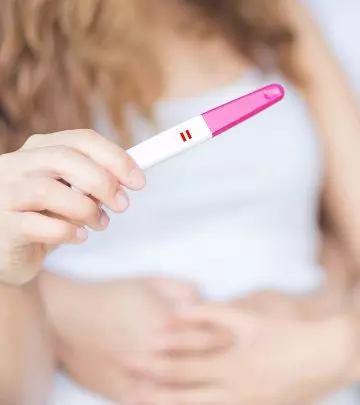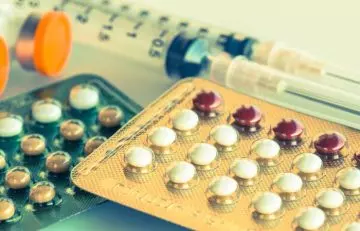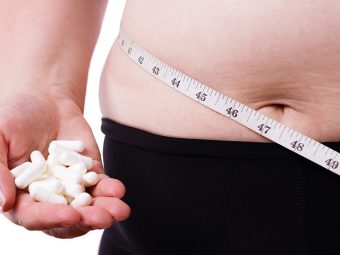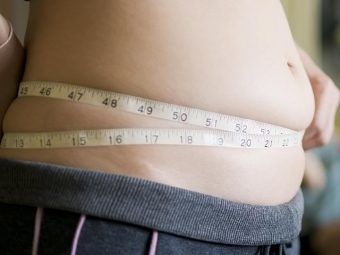6 Factors That Affect A Woman’s Fertility

Image: Shutterstock
Are you and your partner having trouble getting pregnant?
On one hand, 50% of couples manage to conceive within their first three months of actively trying to get pregnant.
But, on the other hand, there are 50% who don’t.
For this latter half, conception is a trickier business, and the journey can prove to be a longer one. There’s no easy way to say this – fertility is complicated. There are a lot of different factors that can influence a woman’s fertility. Certain factors such as age, genetics, and pre-existing medical conditions cannot be controlled.
However, some fertility factors are easy to influence and could be unwittingly hindering your attempts at conceiving. Read on to discover what could potentially be standing in the way of you making a mini-you.
1. Weight
If your BMI is falling in the obese category, those extra pounds may very well be affecting hormone synthesis in your body, thereby making conception difficult.
According to William Schlaff, MD, Chairman of the Department of Obstetrics and Gynecology at Thomas Jefferson University, Philadelphia, “The more weight a woman gains over her healthy weight, the more she tends to experience decreased ovarian function”.
And this is supported by a 2009 study published in Fertility and Sterility. Researchers found that women who were obese at the age of 18 carried a higher risk of developing polycystic ovarian syndrome (PCOS) and subsequent fertility problems (1). Currently, PCOS is the worldwide leading cause of infertility.
However, being too thin can also negatively impact fertility. Women with low BMIs happen to be deficient in leptin (read: hormone responsible for hunger and satiety), which can lead to an absence of menstruation (2).
2. Household Chemicals
Exposure to pesticides, industrial compounds, and pollutants can all reduce a couple’s chances of getting pregnant by a whopping 29% (2). Additionally, a recent study conducted by Washington University discovered 15 everyday chemicals that were found to contribute to early menopause (3), (4).
Nine of the listed chemicals happened to be PCBs, or polychlorinated biphenyls, which have actually been banned from 1979. Yet, they still exist in certain older products. The remaining guilty culprits included two kinds of ‘phthalates’ (read: found in nail polishes and perfumes), three pesticides, and also toxic ‘furan’ (read: an industrial combustion by-product).
3. Smoking
We’re all aware that smoking can harm an unborn child. But did you know this ‘cancer-on-a-stick’ can also drastically reduce a woman’s chances of conceiving? According to the American Society for Reproductive Medicine, smoking accounts for nearly 13% of all cases of infertility (5).
Researchers explain that cigarette smoke may be wreaking chaos on your hormones and damaging DNA. You don’t necessarily have to be a heavy smoker to pay the price of fertility. Apparently, even women who happen to smoke in moderation or are frequently exposed to secondhand smoke can experience significant endocrine dysfunction and fertility issues.
4. Extreme Exercise
Exercise is great for attaining a healthier and stronger body – factors that are important for conception. However, don’t go overboard. Researchers have discovered that intense exercise can negatively impact the process of ovulation. In a study published in the 2012 edition of Fertility and Sterility, women with a normal BMI who happened to exercise strenuously for more than 5 hours per week were found to have a tougher time conceiving.
5. Injectable Birth Control
According to experts, if you stop taking most forms of available hormonal birth control, you are free to conceive within a month. However, there is one glaring exception to this rule – the injectable birth control, Depo-Provera. Each of these injections can prevent a woman from conceiving for 12 to 14 weeks.
Now, while some women do actually conceive in under a month of the protection wearing off, there are also those who can take nearly a year or more to get pregnant post cessation (6). Which is why doctors recommend that women who are actively trying to get pregnant stop using Depo-Provera injections several months before they begin their efforts to conceive.
6. Certain Medical Conditions
Health problems such as endometriosis, uterine fibroids, and PCOS can all affect a woman’s odds of successfully conceiving and carrying a pregnancy to term (7), (8), (9). Additionally, women suffering from autoimmune disorders like rheumatoid arthritis or lupus may also face trouble getting pregnant as their bodies’ hypervigilant immune system could attack their partner’s sperm or even reject the fertilized egg as foreign (10), (11), (12).
Nevertheless, in several cases, though women happened to be suffering from the above-mentioned medical conditions, they were still able to conceive and bear healthy children. Experts recommend working alongside a medical team to improve and manage the symptoms while providing fertility help (if required) to boost your chances for success.
There you have it – six common factors that affect a woman’s chances of conceiving. Fertility may very well be tricky, but you can always try stacking the odds in your favor.
Best of luck!





























